Water, water everywhere and countless drops to drink…
In the far north of Botswana’s Okavango Delta, a UNESCO World Heritage Site and the largest inland delta on Earth, lies captivating Wilderness Safaris Vumbura Plains, offering a luxury eco-safari experience like no other. Perched on raised decks in the midst of the melapo – the annually inundated grasslands – Vumbura Plains almost floats over water, radiant blue and pure enough to drink.
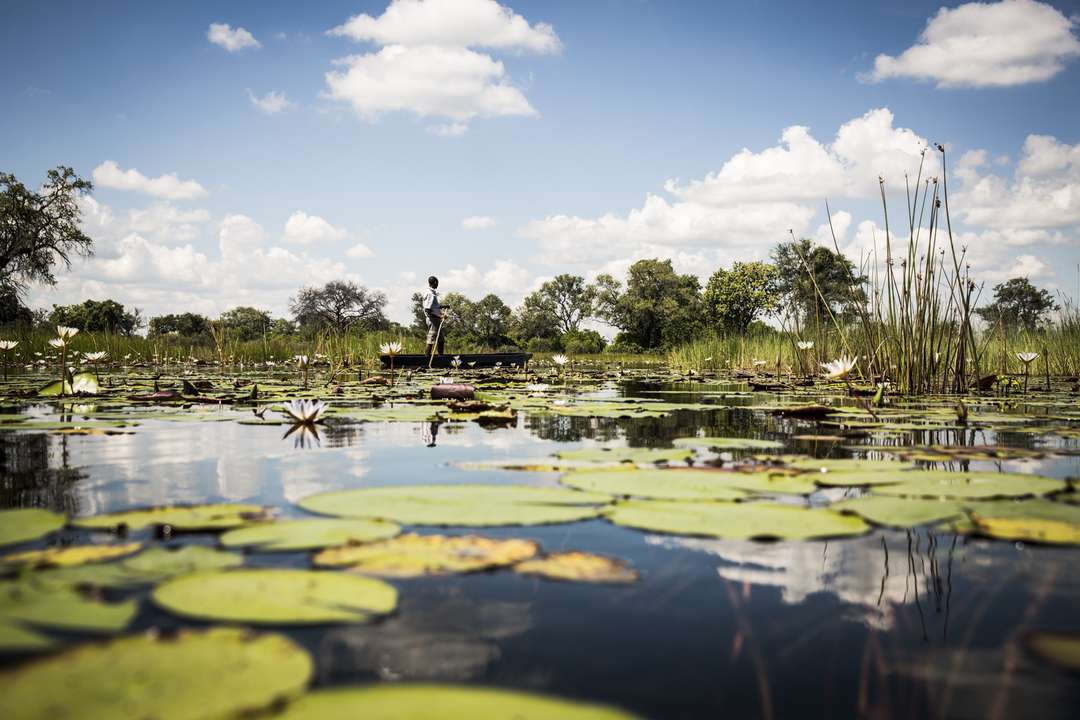
Filtered through the Kalahari sands when it descends from the Angolan highlands each year, Okavango water is sweet, attracting a staggering variety and number of game. Nestled under tree canopies and airily open to nature, Vumbura Plains serves up both land and water-based game viewing, with regular intimate wildlife encounters on the spectacular floodplains, studded with ilala palms and small islands.
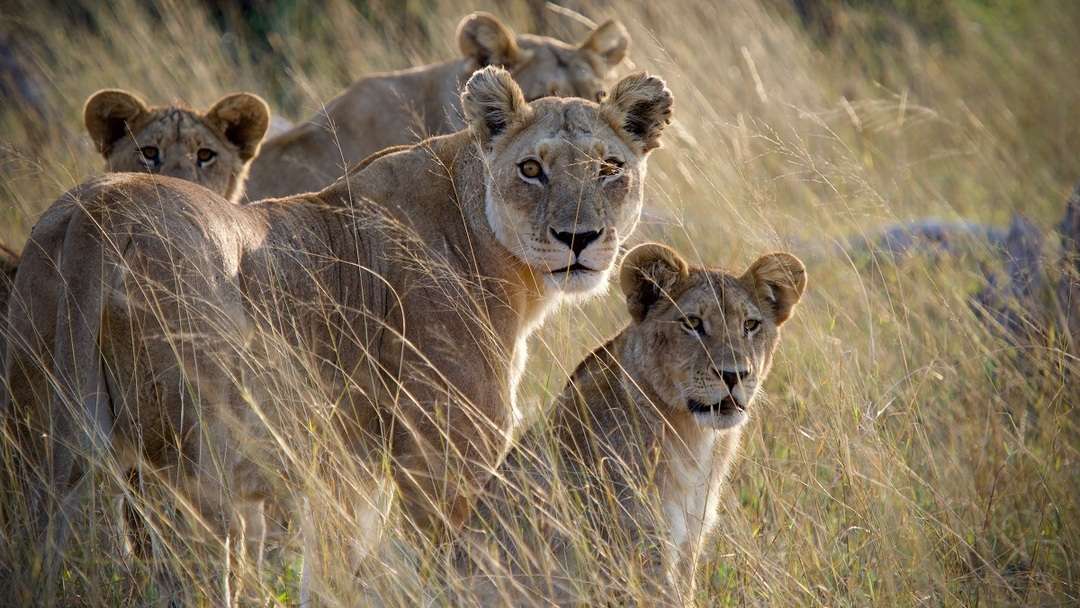
From the comfort of your spacious, contemporary room – an artful balance of wood, glass, and canvas, reflecting the colours of the Delta – watch elephant and antelope herds grazing…Take a morning, afternoon, or evening drive in search of major game, including a healthy predator population, and more than 600 bird species. Walk with a guide to appreciate the Okavango’s smaller life forms…Adventure into the skies, soaring in a hot-air balloon or braving helicopter flips…Change your pace on the water, drifting among the reeds in a traditional mokoro or humming through the channels on a six-seater delta boat.
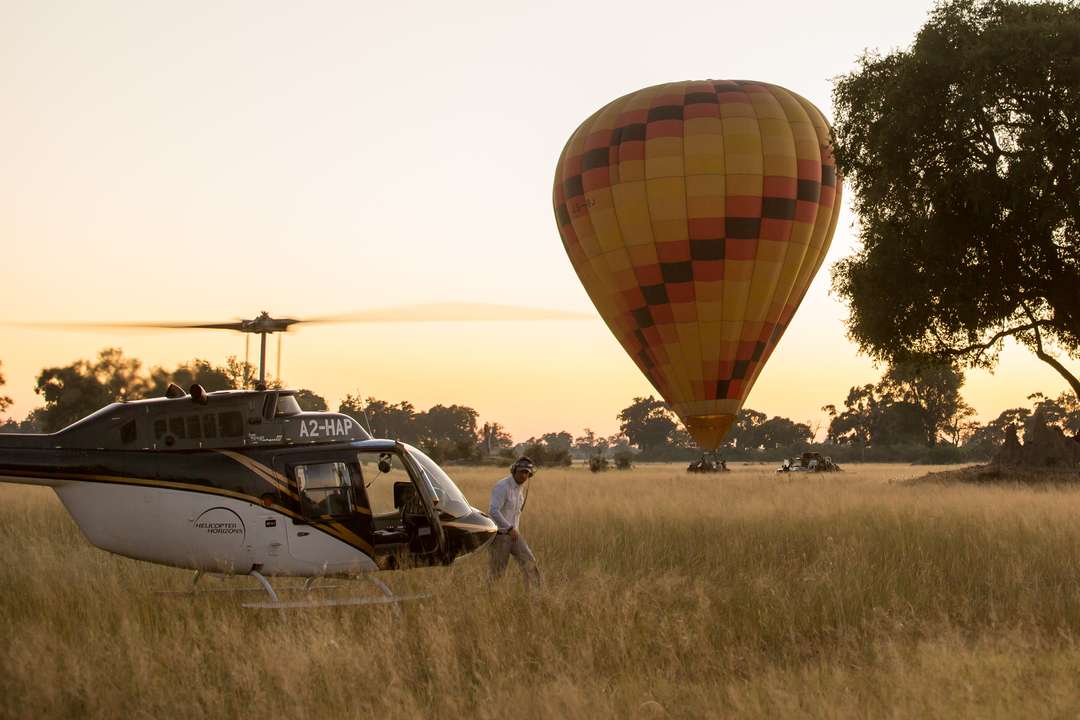
You may even see the leaping lions, hopping across channels in pursuit of prey – just one of the many wondrous experiences at Vumbura Plains, where you can get out on the water year round.
A vast range of habitats and the changing seasons account for extremely diversified wildlife around – and sometimes in – camp. One minute you can be knee-deep in water, and the next driving through mopane forest. As the year turns, water levels change, the flow of water changes, and with all that the animals change.
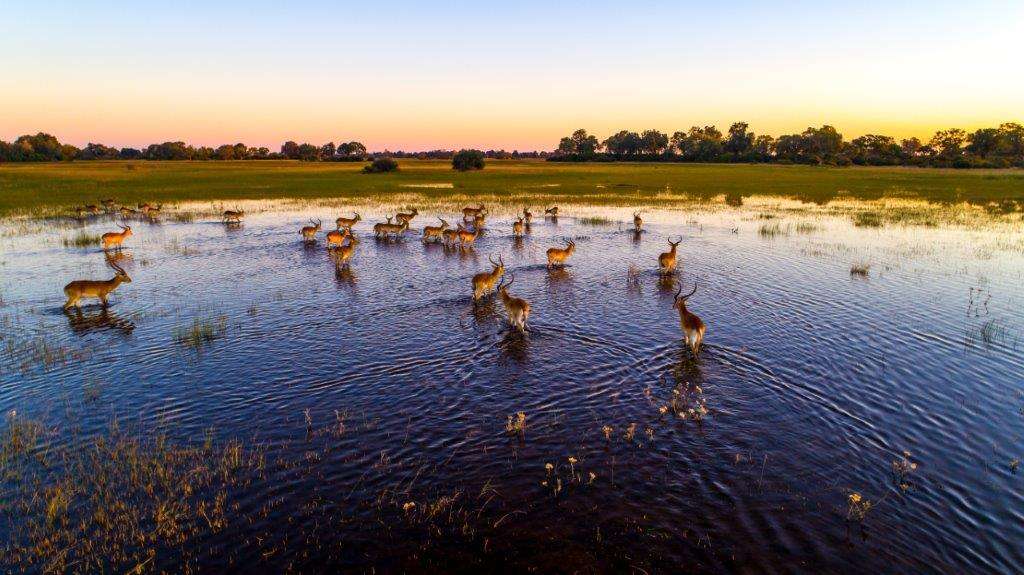
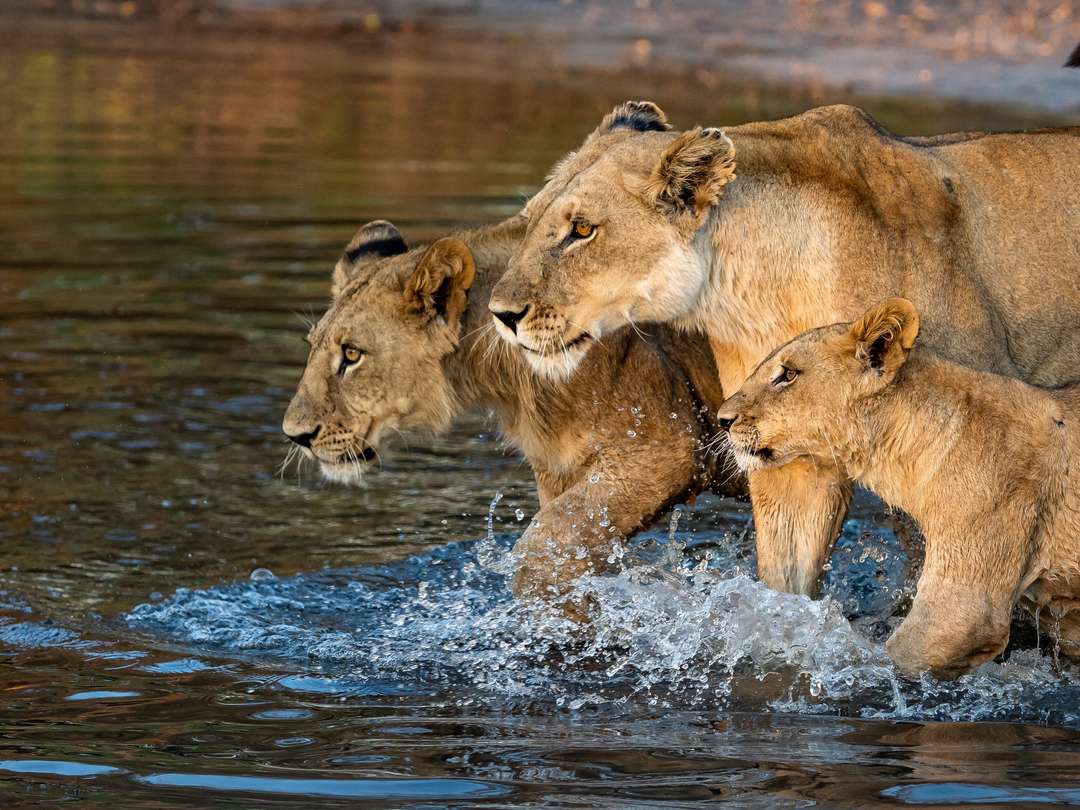
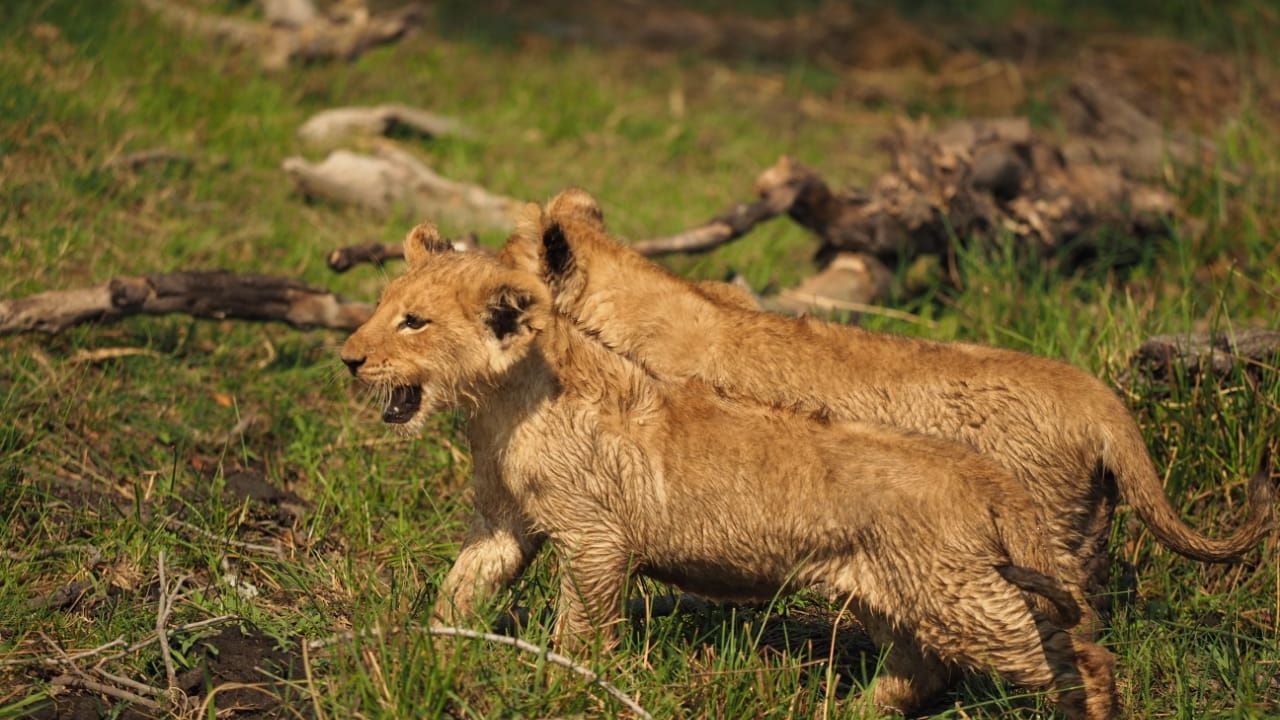

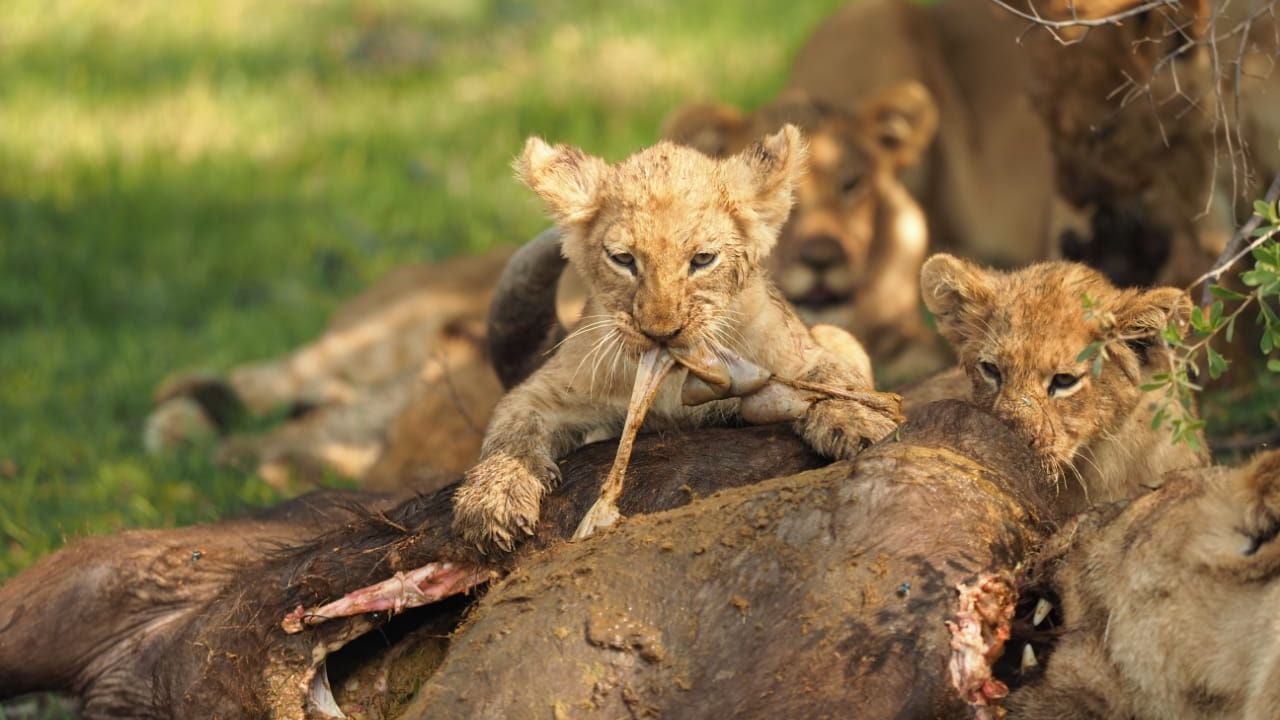



Camp staff, particularly the guides, share endless stories of dramatic wildlife rendezvous. Guide Nas Galebonwe reports leopard cubs drinking from the camp swimming pool, and various species hunting in camp, including wild dog and lion. Guide Onks Letsholathebe describes tracking wild dogs with enthused guests, and a subsequent face-off between the dogs and a leopard guarding a kill. Guide Willie Jenamo cites guests’ thrill at spotting hippos out of the water, come to graze around camp. It’s a never-ending wildlife parade.
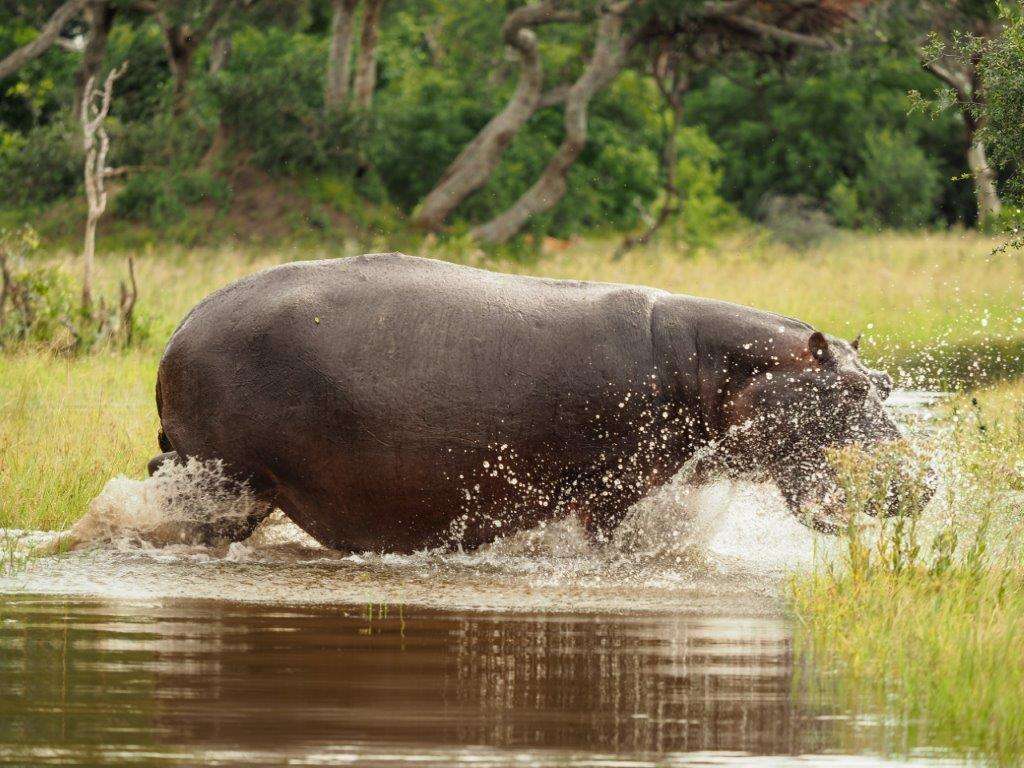
Relief Lodge Manager Corlia Olivier is particularly partial to elephant tales.
‘One of my favourite stories would have to be when we were having a picnic for our lovely guests out in the bush, and the elephants decided to join in’, she says. ‘The guides told us all to sit still as the elephant herd moved within a couple of metres of us. The air was electric; we didn’t move, we barely breathed. The herd’s matriarch just stared at us intently, like she was giving us a message: don’t move and let my family pass and you’ll be fine. As soon as the herd passed, she turned and joined them. Elephants have such an intense connection with one another’. Corlia shares another elephant story…
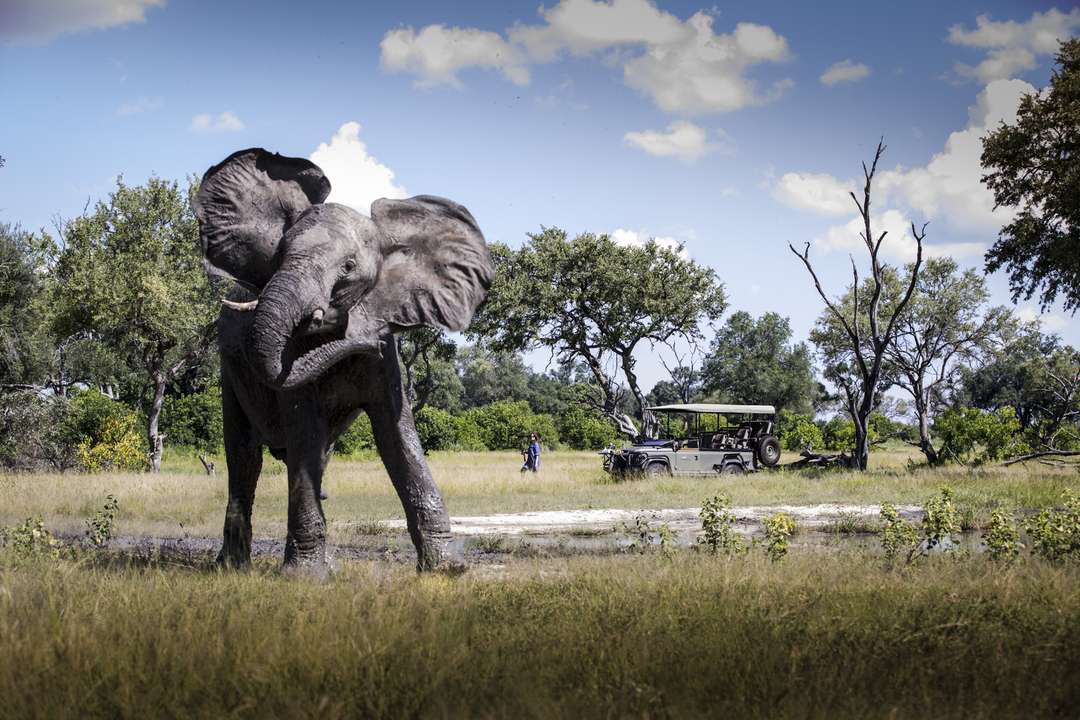
‘Another time we, staff and guests, were all sitting at the fire deck in camp, a lovely seating area with a gorgeous view of the plains. We lit a beautiful African fire, hung some lanterns, and started to tell stories; the sun was just going down. As we talked a herd of elephants arrived, coming to drink. There was a tiny, new baby elephant with them – having trouble understanding its trunk. As the older elephants grazed, drank, and pulled lilies from the water, this little one would go for a lily and fall face first, getting soaked again and again, looking so proud each time it got a lily, turning to its mother. It was such a pure, innocent moment to watch this young one learning how to navigate the waters’.
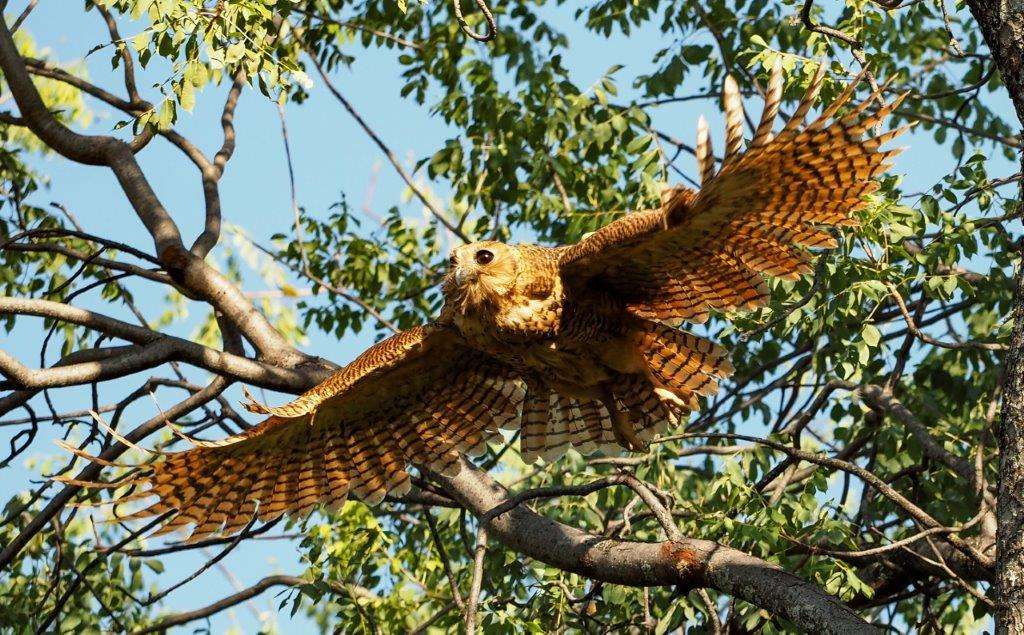
Also abundant at and around camp are birds, seasonally present in huge variety. Birders have a field day trying to spot the Pel’s fishing-owl; carmine bee-eater; saddle-billed stork; lilac-breasted roller; slaty egret; secretary bird; various hornbills; and hundreds of others. Aside from wildlife, there’s much more to celebrate at Vumbura Plains. Sunrises, for one – according to staff, the best time of day there. ‘It’s when the sun, earth, and water meet’, Corlia says. The sunrise is filled with promises of a new adventure…’
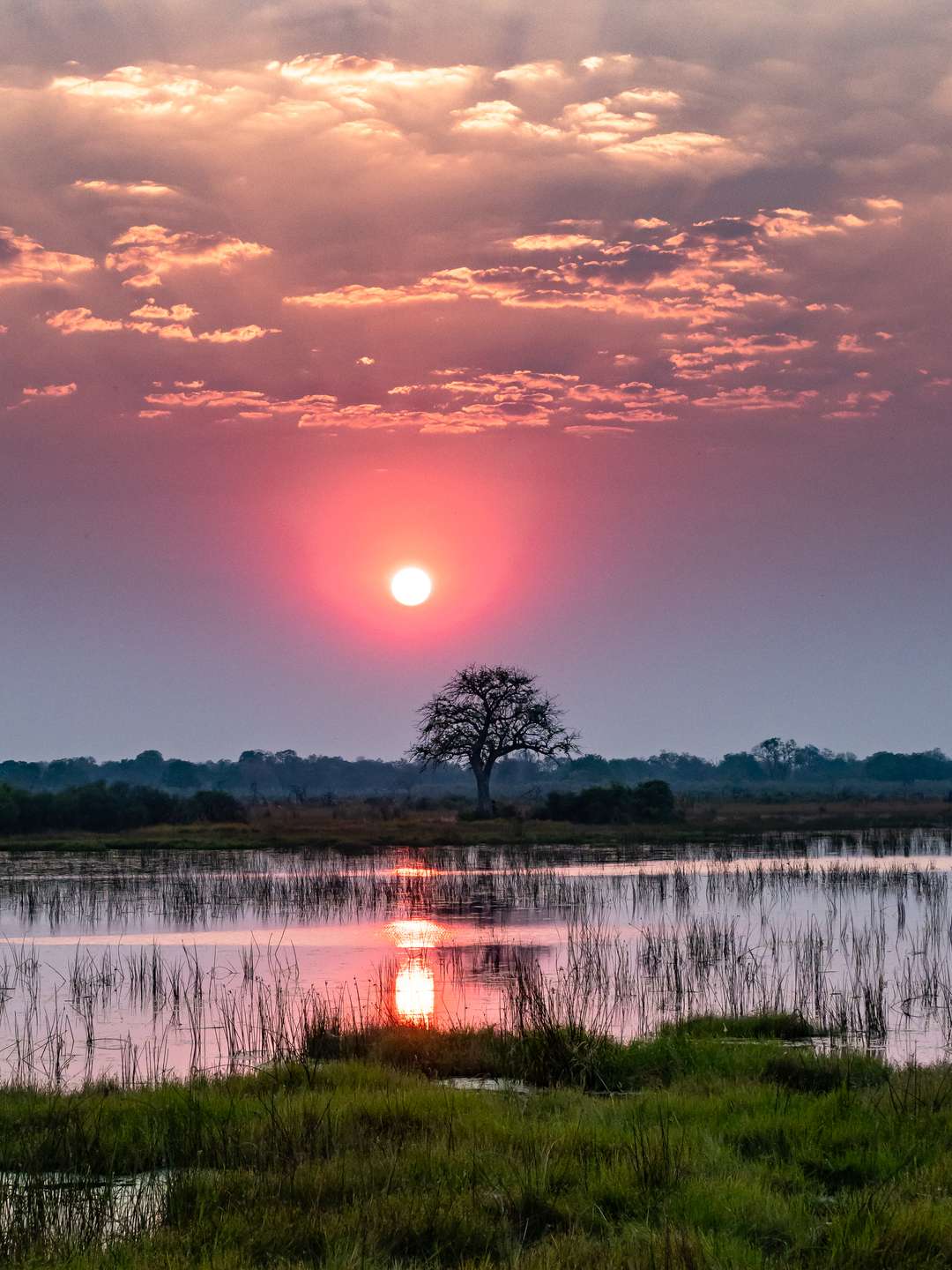
The staff itself, their devotion and camaraderie. Most of our staff comes from the five villages close by. Namely, Seronga, Gunotsoga, Beetsha, Eretsha, and Gudigwa. Not many of them had any formal training or qualifications before they got here. So with drive and determination, and the assistance of our in-house training department, we have seen many of them grow into supervisor and management roles. This is indeed a great place to be, with most of the team being here for ten years or longer. Staff love sharing their own stories with the guests, about where they are from, growing up in Botswana, their traditions, and their favourite experiences while working at Vumbura.
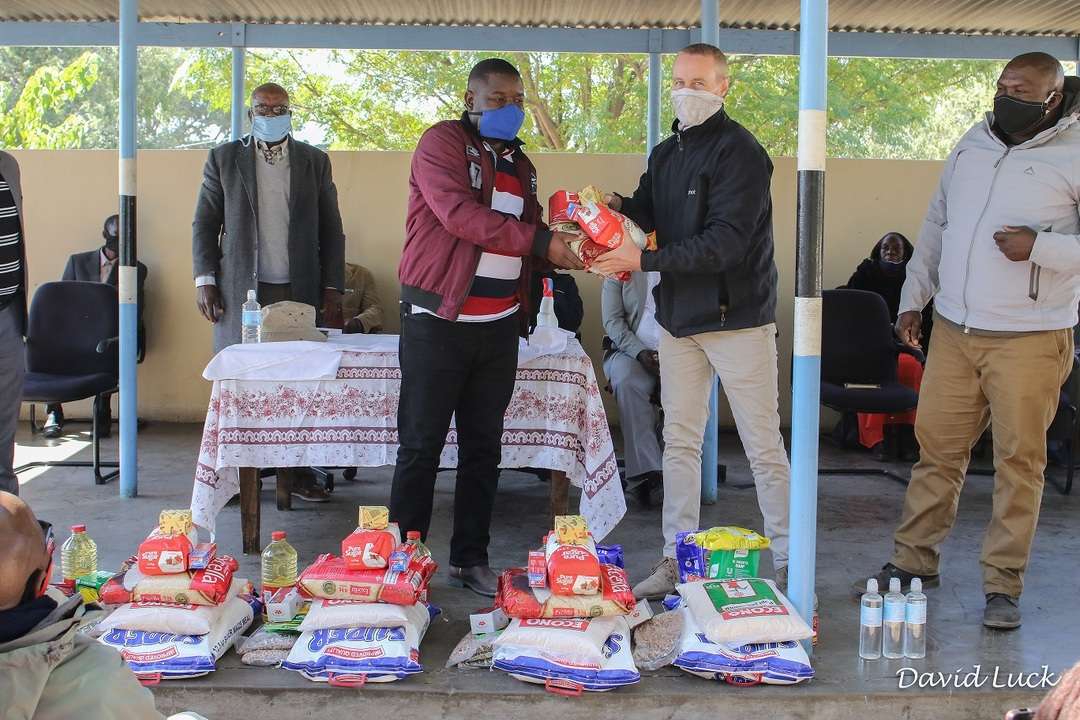




Like other Wilderness Safaris camps, Vumbura Plains takes an active role in helping uplift local communities. Throughout 2020, with the COVID-19 pandemic further threatening food security in the remote villages in the area, staff participated in five food deliveries to the villagers, the neediest identified by community leaders. Ongoing community projects include agricultural support to local farmers, helping them clear and plough the fields and providing boreholes and water tanks, and the Children in the Wilderness project, furthering conservation education now and for generations to come.
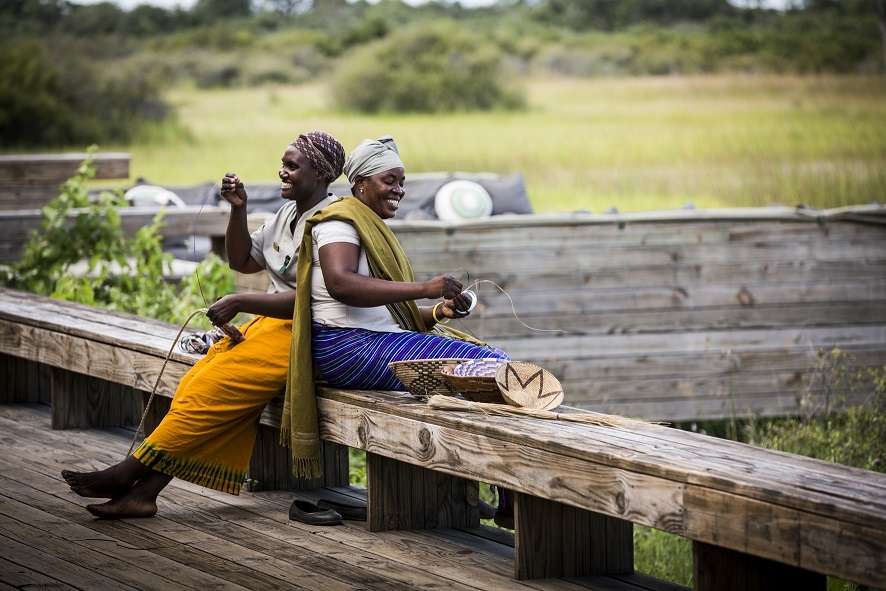
Vumbura Plains staff are also involved in ongoing wildlife conservation, including monitoring and relocation initiatives in partnership with the Botswanan government.
Ecologist Robert Taylor, visiting Vumbura Plains regularly, sings its praises loudly.
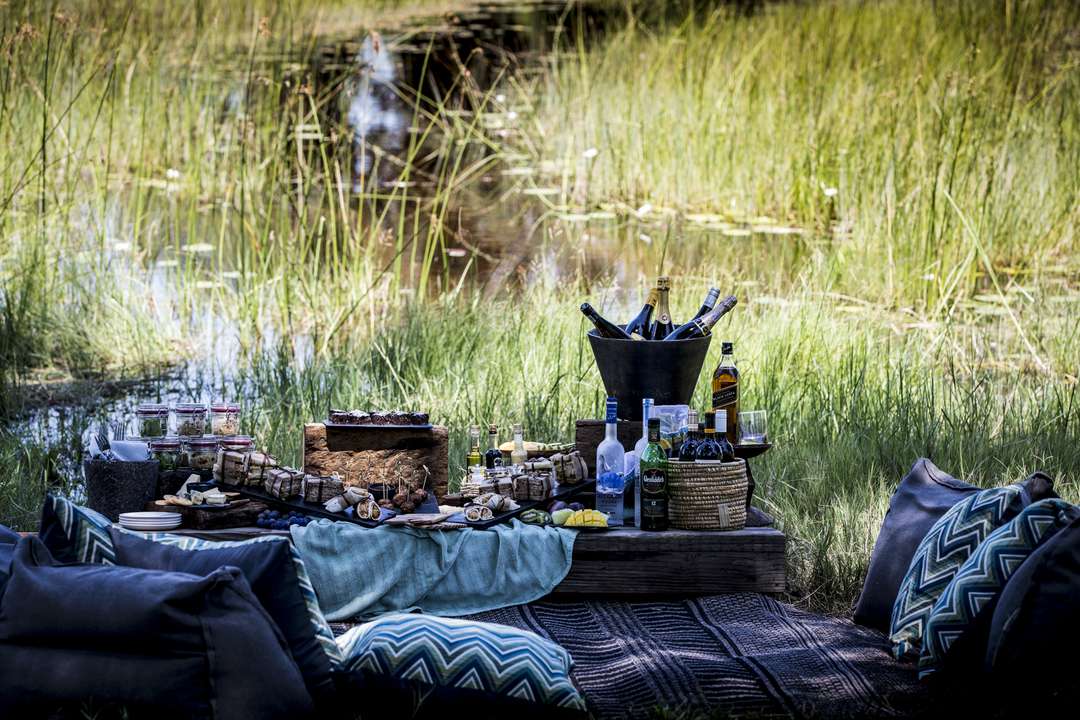
‘Vumbura is a truly Okavango experience’, he says. ‘Other concessions might have a higher density of game, but none can compete with Vumbura on scenery and awe. There is water everywhere, and the multitude of aquatic and wetland habitats results in a diverse and constantly changing environment to explore. Game viewing is done in style against a backdrop like no other. The riparian forest around Vumbura Plains is host to a vast array of bird species and a small female leopard who calls Vumbura Plains home. The wetland life around camp is exquisite – waterlilies flower in their thousands and bell frogs serenade you with their chiming calls as you eat supper…’


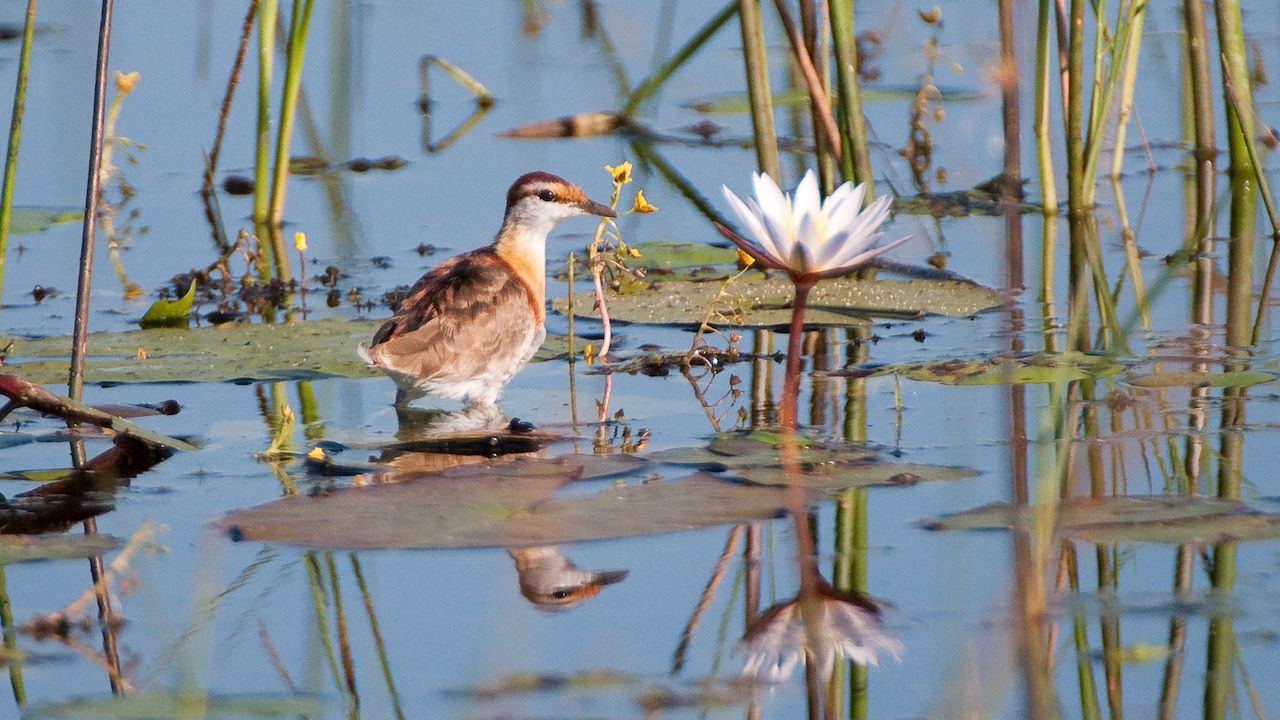



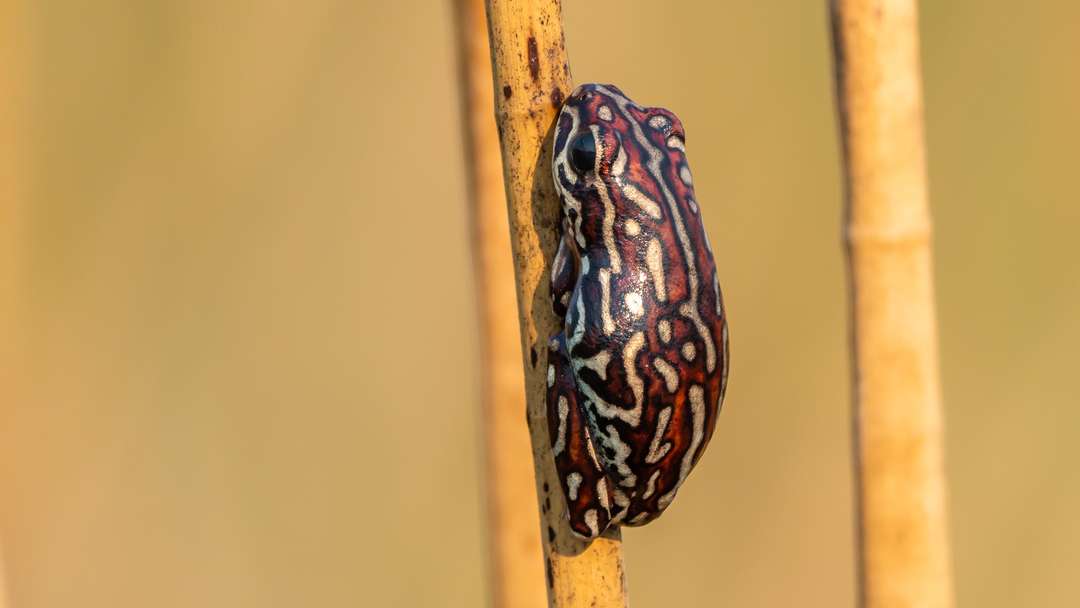
First prize, Robert says, is to explore Vumbura Plains from all its angles, citing a recent ‘holistic experience’ there that almost leaves one breathless, merely hearing about it.
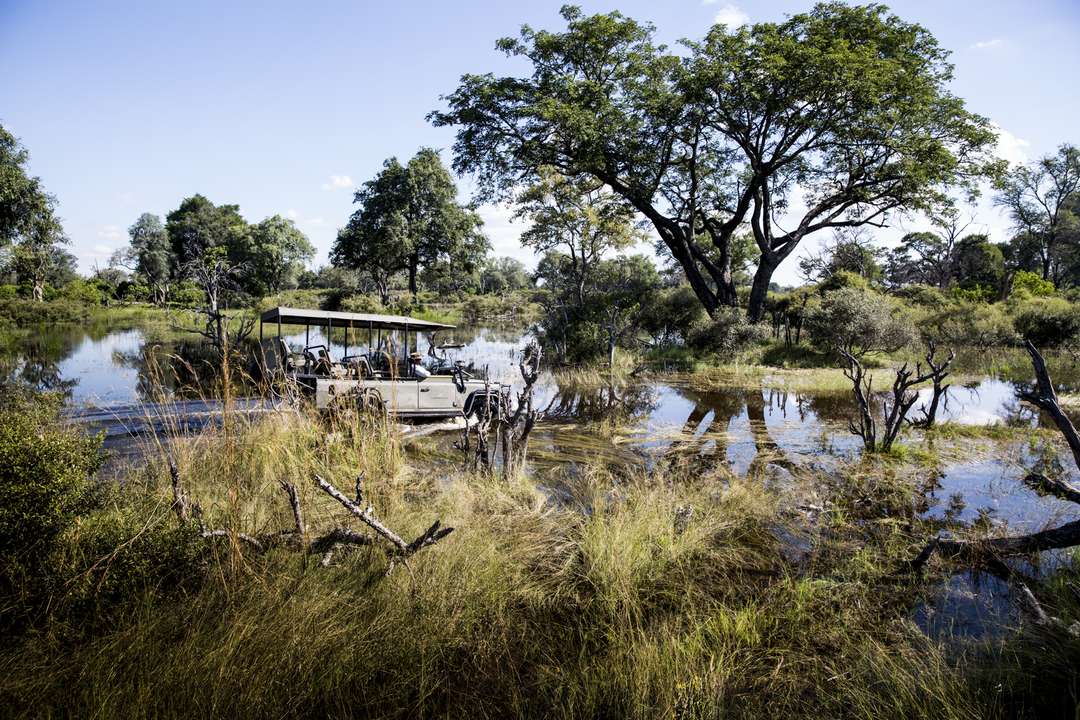
‘It started with high tea in camp, followed by a game drive to the Little Vumbura boat station, and a boat cruise to a remote palm tree-covered island where a helicopter was waiting. We flew over permanent papyrus swamp, spotting sitatunga and monster crocs, then winding our way along the Nqoga River (aptly named after a slithering snake) and landing in the shallows, where the guests took off their shoes to wade calf-deep through cool, crystal-clear water to a gin bar, in the water, as the sun sank slowly over the horizon. A short night drive back to camp culminated in a delicious meal on the deck…’
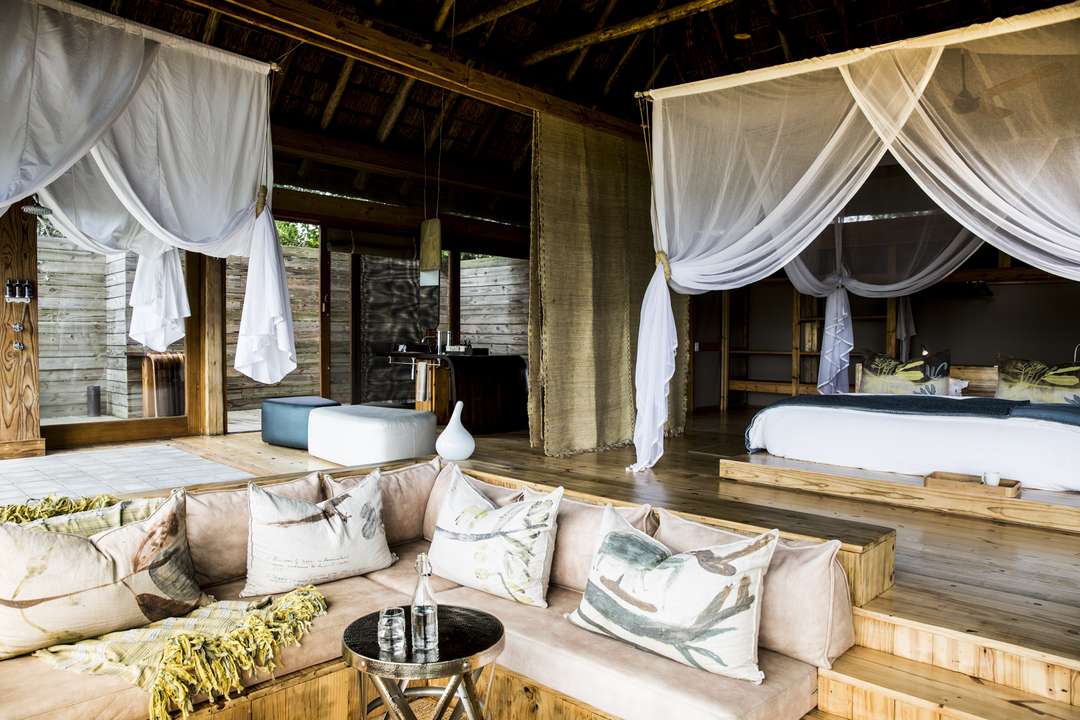
Vumbura Plains’ one down side, it seems, is when it comes time to leave.
Written by Melissa Siebert

Let’s plan your next journey
Ready?
When we say we’re there every step of the way, we mean it, literally. From planning the perfect circuit, to private inter-camp transfers on Wilderness Air, and easing you through Customs. We’re with you on the ground, at your side, 24-7, from start to finish. Ready to take the road less travelled? Contact our Travel Designers to plan an unforgettable journey.